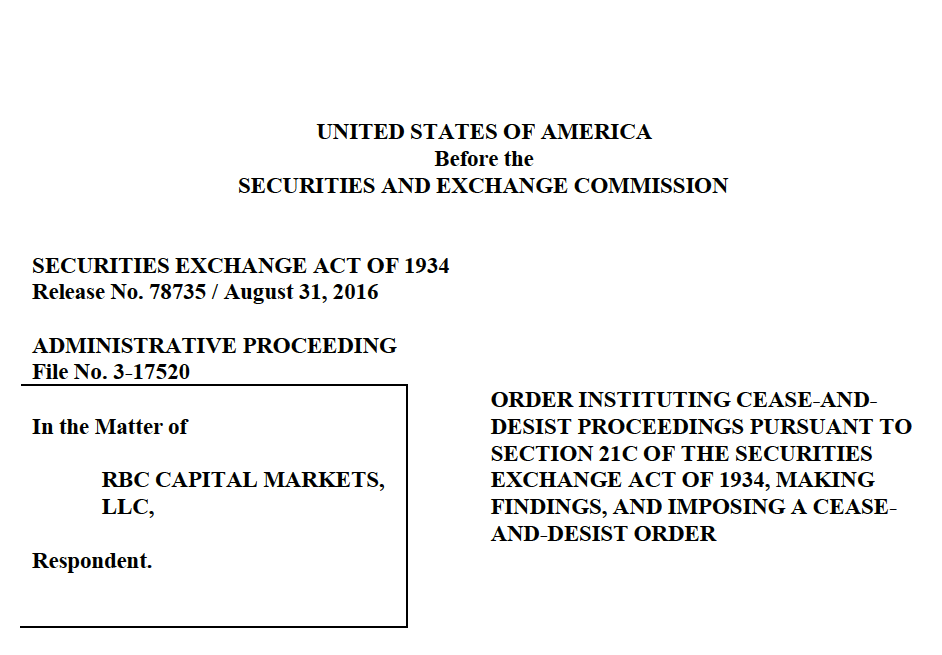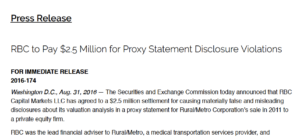Types of SEC Cases: False Proxy Statement Disclosure
SEC Fines Investment Bank $2.5 Million For False Proxy Statement Disclosure
The SEC charged the U.S. division of an International Investment Banking Firm with false proxy statement disclosure in its rendering of a fairness opinion that contained materially false and misleading information.False Proxy Statement Disclosure Violations Due to Misleading Valuation Analysis

The SEC Order
RBC’s Fairness Committee Oversight
The SEC also found that RBC’s fairness committee was complicit in the fraud. According to the Order, the fairness committee advised RBC’s banking team to make changes to the precedent transaction analysis. RBC’s banking team then revised the precedent transaction analysis to make Warburg’s bid more attractive. The Order states that an RBC managing director who sat on the fairness committee proposed “add[ing] some bullets that say Wall Street analyst[s] do not reflect any of these one-time expenses. Something to explain why we are not adjusting.” The SEC determined that this showed evidence of RBC’s active role in providing false and misleading information. In an SEC press release regarding the case, the Director of the SEC’s Enforcement Division stated:Accurate disclosures about financial advisersʼ fairness opinions are important to shareholders in the sale of a corporation. This enforcement action holds RBC accountable for causing its client to distribute material misstatements about its financial analysis to shareholders.
Penalties For False Proxy Statement Disclosure
RBC entered into a settlement with the Commission to resolve the charges related to its false proxy statement disclosure and agreed to cease and desist from causing further violations. RBC also agreed to the following monetary fines:- $2,000,000 (penalty)
- $500,000 (disgorgement)
- $77,759 (interest)

The SEC’s Press Release
Whistleblowers Can Report False Proxy Statement Disclosure Fraud To The SEC
This case illustrates some types of misconduct that could give rise to SEC whistleblower cases if reported to the Commission through the SEC whistleblower program. However, the SEC has not made any public statement as to whether this case was itself an actual SEC whistleblower case. The SEC Office of the Whistleblower posts Notices of Covered Action (“NoCA”) for Commission actions where a final judgment or order results in monetary sanctions exceeding $1 million. The NoCA list does not disclose if a particular Enforcement action was brought as the result of an SEC whistleblower case, tip, complaint, or referral being filed with the Commission.Additional Information
For more information about false proxy statement disclosure, click on the links below:- The SEC’s Order in SEC v. RBC. (External link to the SEC’s website.)
- The SEC’s Press Release announcing the charges and settlement. (External link to the SEC’s website.)







